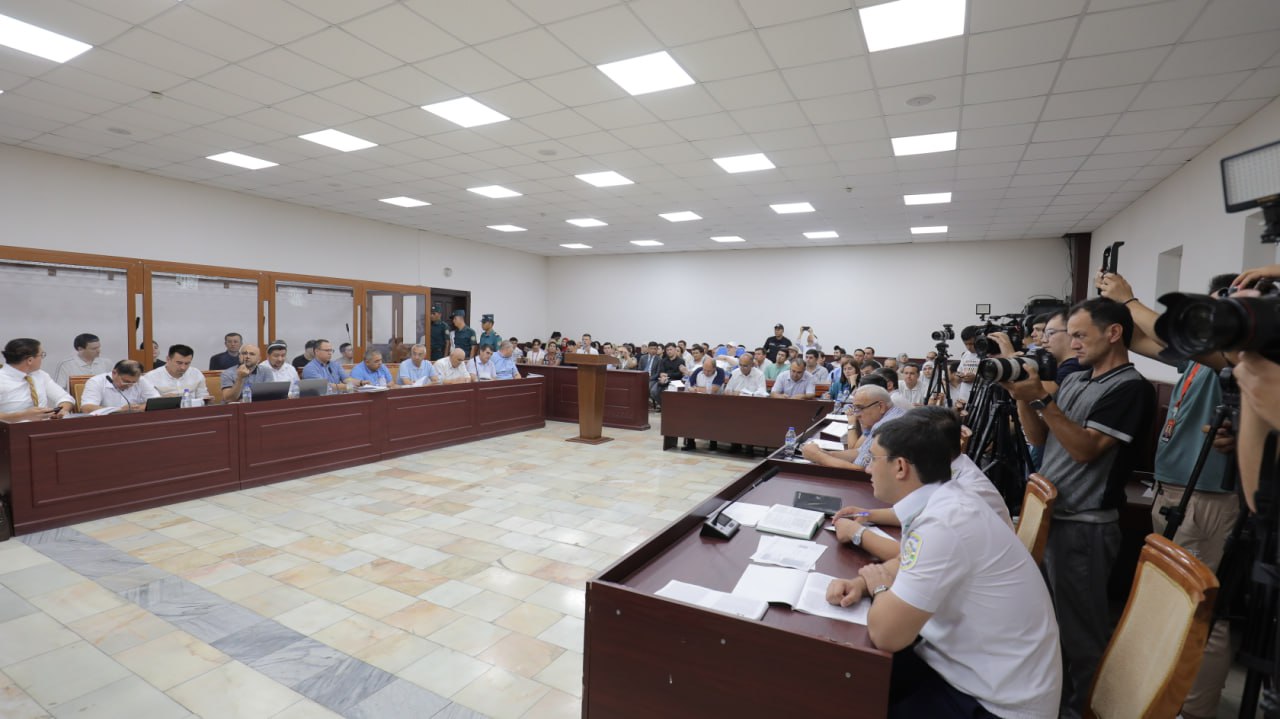On August 11, the Tashkent city court initiated the review of a complex criminal case involving multiple individuals and entities related to the drug named "Dok-1 Max." The accused individuals include S. R. P., a man born in 1972 in the Republic of India and the director of "Quramax Medikal", and S. K., a man born in Tashkent in 1982. S. K. concurrently held positions as the director of the Pharmaceutical Network Development Agency and the director of the State Center for Expertise and Standardization of Medicines, Medical Products, and Medical Equipment.
In total, there are 21 defendants in this case, which includes "Quramax Medikal" and responsible employees of the State Center for Expertise and Standardization of Medicines, Medical Products, and Medical Equipment. Out of the 21 defendants, 16 are men and 5 are women.

Charges and accusations
The accused individuals and entities are facing a wide array of charges, as outlined in the Criminal Code. The charges include:
- Article 184: Violation of Sanitary and Epidemiological Rules. This charge pertains to the improper handling of substances related to public health and safety regulations.
- Article 186-3: Illegal Circulation of Medicinal Products. This charge is related to the unlawful distribution, sale, or trade of medicinal products, including the drug "Dok-1 Max."
- Article 205: Commercial Bribery. Accused individuals are charged with offering or accepting bribes in a commercial context.
- Article 207: Forgery or Falsification of Documents, Stamps, or Seals. This charge involves the creation or use of forged documents, stamps, or seals for deceptive purposes.
- Article 209: Abuse of Power. Accused individuals are charged with abusing their official positions for personal gain or advantage.
- Article 210: Misappropriation or Embezzlement. This charge relates to the wrongful appropriation or misuse of funds, property, or assets entrusted to the accused individuals.
- Article 211: Legalisation (Laundering) of Funds Obtained by Criminal Means. This charge pertains to the process of concealing the origins of illegally obtained funds.
- Article 212: Tax Evasion. Accused individuals are charged with evading taxes through illegal means.
- Article 228: Illegal Drug Trafficking. This charge involves the illegal trafficking, distribution, or sale of drugs, including the drug "Dok-1 Max."
Legal actions taken
Out of the 21 defendants, 7 individuals have been placed under arrest pending further investigation and trial. This suggests that the court considers them to be high flight risks or a potential danger to society if left free.
12 individuals have been granted a "receipt of good behaviour." This implies that they have been released, likely under certain conditions, due to their perceived lower level of involvement or risk. These conditions may include regular check-ins with law enforcement, restrictions on travel, and other measures to ensure their presence during the trial proceedings.
Two individuals have been released on bail, indicating that they are permitted to remain free temporarily, but they are required to provide a specified amount of money as a guarantee that they will attend court hearings and comply with other legal obligations.
Earlie Daryo mentioned that the press division of the Supreme Court made public details on August 10 concerning a prominent criminal case involving the contentious medication "Dok-1 Max." The case has incited significant public backlash due to its association with the fatalities of 65 children in Uzbekistan.
#Uzbekistan reviews #criminal case #involving "Dok-1 Max" #drug that #caused 65 children #deaths
🇺🇿💊🇮🇳👩⚖️#Tashkent court #commences complex #case involving "#Dok1Max." Defendants face #charges from #illegal #drug #trade to #abuse of #power, leading to #arrests, releases, and… pic.twitter.com/RNrp5XtGEK
Follow Daryo's official Instagram and Threads pages to keep up to date on world news.
Comments (0)